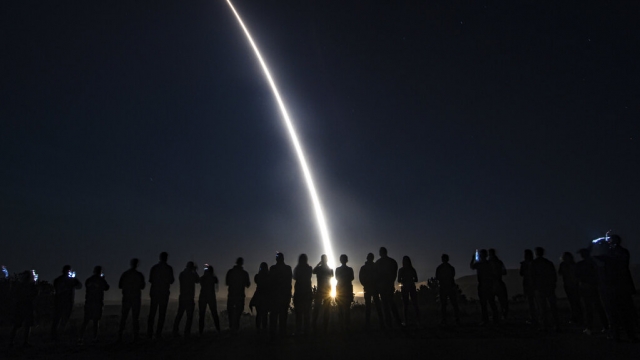When it comes to our military, the United States Space Forceis still the new branch on the block.
"Most Americans probably don't realize just how important space is to their day-to-day lives," Maj. Gen. Timothy Sejba said.
Established on Dec. 20, 2019, as the sixth branch of the Department of Defense, the U.S. Space Force is only four years old. But, despite its young age, the branch has quickly become a critical part of U.S. defense efforts — at a time when the branch says space has become increasingly "congested, contested and competitive."
"It is so absolutely critical that the Space Force continue to build out the things that we were asked to do, which is really to protect U.S. interests in, through and from space," Sejba said.
Sejba is the commander of the Space Training and Readiness Command, or STARCOM. Its purpose is to prepare space force personnel for combat.
From a point of congestion, Sejba says the amount of activity happening in space has skyrocketed in recent years as countries and businesses race to launch a growing number of satellites and spacecraft into orbit.
SEE MORE: Biden says he would shut down border if Congress sends him a deal
"So, there's just more objects that we have to worry about, which means then we have to have what we call space domain awareness. We need to be able to track all those objects so that if we're trying to launch a satellite into space, we don't launch it into, for example, a debris cloud or an active satellite," Sejba said.
From a competition standpoint, financial experts are predicting that by 2040, the space economy will exceed $1 trillion in value.
"As we see the innovation that's happening and what some of these private investors and different entrepreneurs are doing to push the envelope in space ... the opportunities start to open up, over the next five or 10 years and certainly sets the stage for a very different space ecosystem 15 or 20 years from now," Sejba said.
Economy aside, Sejba says the need to protect U.S. national security interests from space — as well as those of our allies — has never been as crucial as it is now.
Sejba says the U.S. Space Force has been working on a series of projects to expand it's ability to respond to threats.
"In September of last year, we did something called Victus Nox. It was our opportunity to try to really deliver what we call responsive space capabilities to the United States. What it really entailed was taking a rocket; taking a satellite with a specific mission, and within 24 hours of being given the order we brought all that together, and we launched it in space almost two or three weeks faster than we had ever done before," Sejba said.
Since its inception, the U.S. Space Force has carried out more than 200 launches, with more in the works for 2024. As of 2023, the branch consists of roughly 14,000 military and civilian Guardians — a number Sejba says the branch is working to grow.
"It's critical to every one of us. And, that's why it's so absolutely critical that the Space Force continue to build out the things that we were asked to do, which is really to protect U.S. interests in, through and from space," Sejba said.
Trending stories at Scrippsnews.com



